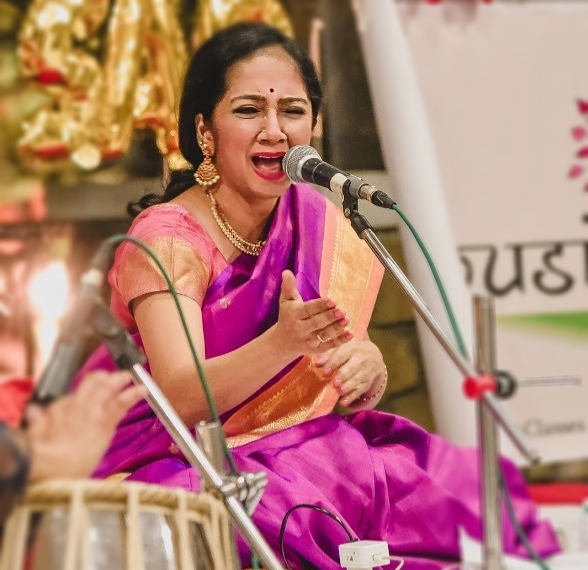Nithya Rajendran, a known name in Hindustani and Carnatic classical music, believes that Indian ragas are therapeutic in nature and have immense healing powers.
Nithya Rajendran, a vocalist with three decades of training in Hindustani and Carnatic classical music, uses rhythms and ragas to help working professionals and students enhance their creativity and mindfulness, besides assisting them in destressing and managing mood swings. The founder of Music Vrkush, a platform aimed at pushing Indian classical music, talks about her journey and how ragas can be used as a therapy.
Q. How do you inculcate the love for classical music into a person who is not inclined towards music?
A. It’s quite simple. Music is ingrained in all of us. As human beings, we respond to rhythm very easily. Moreover, Indian classical music has powerful emotive potential which makes it a wonderful resource. Because classical music was confined to royal courts and temples earlier, it has been associated all along as a musical form for the learned and the elite. We need to bring it out of this confinement.
Q. How can classical music help today’s generation?
A. The current generation has immense challenges ahead of them. While they are an empowered generation with technology, the banes are no less. They are living in an age of instant gratification, social isolation, fast foods and climate change. The qualities of focus, perseverance, inner calm and tenacity don’t develop easily in such a milieu. Indian classical music owes its roots to the primordial sounds of creation. The seven notes are born from the sounds of nature and in this lies its potential to help our current generation. It can help our youth calm down and be focused.
Q. You were not always into this field of art; how and when did you decide to pursue music full-time?
A. I was always in the milieu of music and singing. Funnily, it didn’t strike me till about 15 years ago to take it up full-time. Coming from a conventional background where steady nine-to-five job with a guaranteed paycheque was the norm, music was not an easy choice. It was life-changing realisations after getting on a spiritual path that made me first understand that music is a gift and I should pursue it full-time. Later, I came to realise that music multiplies happiness when it is shared. That’s when Music Vruksh was formed. And from being just an artist with a desire for the recognition I became someone with a more inclusive goal: To make classical music accessible to everyone.
Q. Would you talk about some of your influences? The musicians you like?
A. I have always gravitated towards people of any field who have shown qualities of excellence, compassion, determination and a spirit of deep enquiry. These are qualities I admire in others and strive to develop in myself. For this reason, I find role models in an eclectic set of greats; from Albert Einstein to Marie Curie and from Bhimsen Joshi to Mozart — all these people are inspiring in their unique ways. Among Indian classical musicians, Pandit Bhimsen Joshi and M.S. Subbulakshmi have been my beacons.
Q. What’s your favourite raga and why?
A. This is a tough one. I have so many. But to make classical music accessible I have loved Raag Yaman and Raag Bhairavi, for their mass appeal. These kinds of ragas empower me and allow me to be confident that I can make the average person start to love classical music. Even ragas like Desh and Kalavati have immense mass appeal.
Q. How did the Music Vrkush journey begin?
A. Music Vruksh is an initiative which is a culmination of many things: my musical journey over 30 years, my spiritual quest through meditation, and my experience through teaching and performing for people. Now is it a growing umbrella of offerings — concert demonstrations that demystify classical music for the layperson and thematic concerts that bring both forms of Indian classical music (north and south) on the same stage through my single artist performances. Besides, Music Vruksh also offers classical music training which is seamlessly executed through my panel of highly qualified teachers. We attempt to reach children and adults of all ages.
Q. You say classical music is therapeutic. How?
A. It is important to use the word ‘therapy’ in a holistic sense because classical music is an aid to spiritual qualities like awareness, focus, compassion, humility and tolerance. When you develop these inner traits, your body and mind respond with health and vibrance. That’s the most powerful way to use music for healing. At a more surface level, ragas are being used as support therapy in a range of illnesses like dementia, Alzheimer’s, depression, anxiety and metabolic disorders. There are many music therapists who focus on this type of therapy. Increasing research is proving the efficacy of such approaches.

